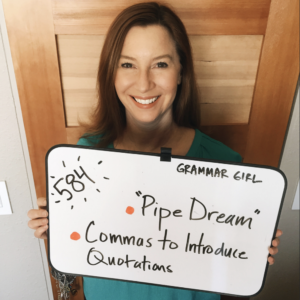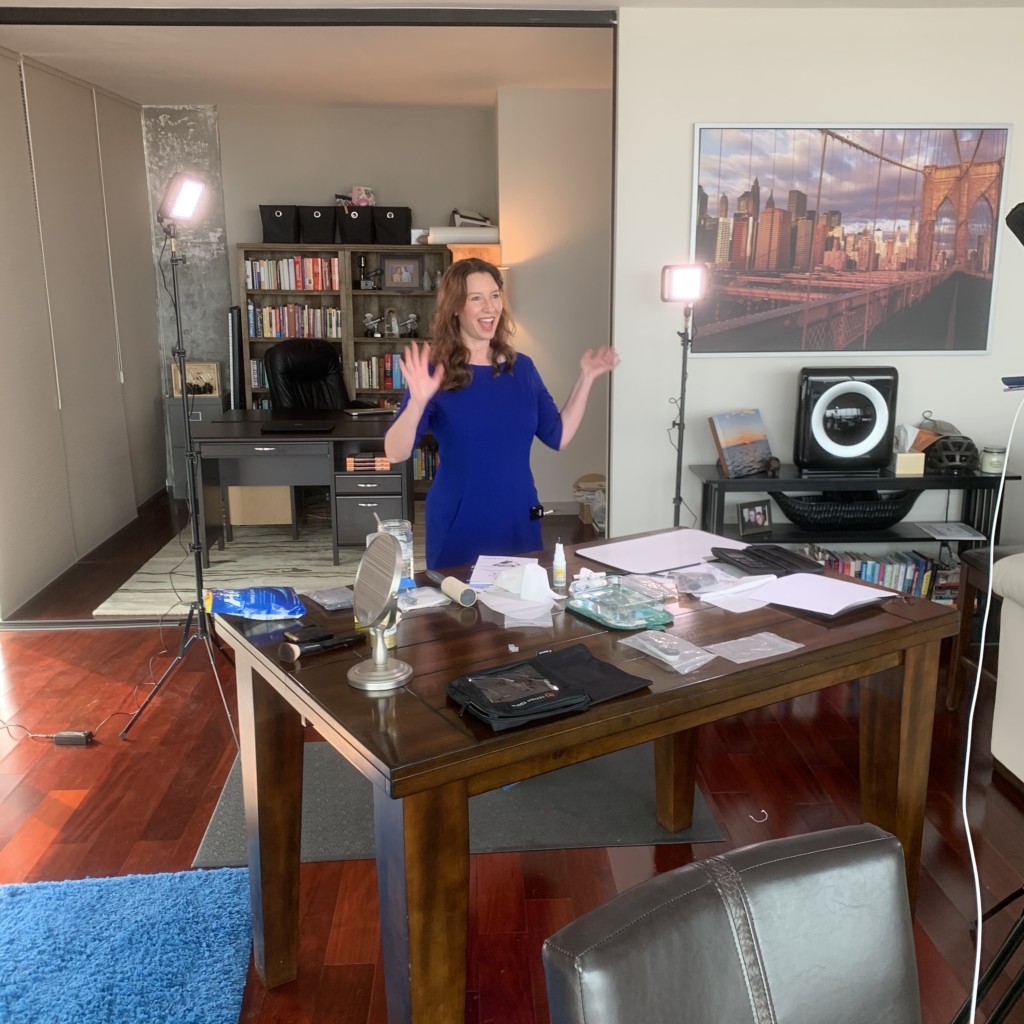The podcast landscape is rapidly evolving. You have to subscribe to at least three industry newsletters just to keep up with the latest changes to platforms, metrics, and networks. But alongside those quantifiable shifts, there is also the change in what’s considered “best practice” when getting started. New shows are competing not only with other new shows, but also with shows that made it big years ago and continue to earn listeners today. Repeating the path to success might no longer be possible, but that doesn’t make it any less fun to dig into the stories of the heydays of podcasting. Mignon Fogarty’s story of starting Grammar Girl is one of them.

Fifteen years ago, Fogarty was working as a freelance writer and editor when she realized that many of her clients were making the same mistakes in their writing. She also happened to be listening to a lot of podcasts and making a chat-cast show about science. So in 2006, Fogarty decided to start a niche podcast about grammar. Grammar! Early episodes of Grammar Girl were only two minutes in length and offered “quick and dirty” tips for people who wanted to improve their writing. Little did she know that the show would eventually get 800,000 listens per month and be the catalyst for an entire network.
“It was very difficult to produce podcasts back then,” she says. “Recording was an ordeal and it was taking a lot of time.” After eight months of experimenting with the medium, she decided to produce a scripted show that would support her full-time work. “I knew a scripted show would be quicker than editing a rambling conversation,” she says.
Each Grammar Girl episode took about six hours to produce. Fogarty says she did a lot of research and writing to ensure that each episode offered listeners tangible takeaways to help with their grammar. Within six weeks, it was number two on iTunes.
“It took off like crazy,” recounts Fogarty. “To this day, I’m still not entirely sure why.” Grammar Girl quickly earned a lot of press, found its way into workplaces and schools as a learning tool, and landed on the Oprah Winfrey show in 2007. “I didn’t even have a PR person,” she says. “I kept thinking this can’t last… but it just did.”
Fogarty had some experience working with startups in Silicon Valley and knew that if something took off that quickly, it was worth scaling. Almost immediately, the show became a jumping point for a podcasting network. “One of the biggest advantages of a network is that the shows can help each other. They can cross-promote,” she says. “You can help each other drive traffic and grow.”
And so, the Quick and Dirty Tips network was born.
“I don’t want to glamorize overwork because I’m very conscientious of having a balanced life now, and not overworking, but during that time, I did.”
There had been two options for developing content: vertically or horizontally. With a vertical setup, Fogarty would have created more grammar shows in a variety of different languages and formats. But Fogarty opted to grow horizontally and create shows about different topics, all following the same format: “They’re short scripted shows that help you do something better… [with] one piece of actionable advice, every week, from an expert.”
Participating in podcast networks is now a no-brainer tactic for scaling, but at the time, she was a trailblazer—and she is continuing to reap the benefits of following her instinct. Currently, there are 10 shows in the network, including Modern Mentor and Get Fit Guy. Many of them saw similar success to Grammar Girl; shows like Money Girl and Nutrition Diva have been on the network since the beginning and continue to publish episodes and gain audiences.
Shortly after setting up Quick and Dirty Tips, Fogarty partnered with Macmillan Publishing to help run the network. They also offered her a book deal. “It was a whirlwind,” she says. “I think I was incredibly lucky but I also worked very, very hard. I didn’t even take a weekend off for the first three years. I don’t want to glamorize overwork because I’m very conscientious of having a balanced life now, and not overworking, but during that time, I did.”
Fogarty has written several books since then, and has also developed a Grammar Girl card game and iOS game.
As for the Grammar Girl podcast, the show continues to publish weekly episodes running about 15 minutes in length. She’s still the host, but guest writers do occasional segments to help keep the ideas fresh. A producer and editor now support her in production, but Fogarty still records in her “home studio,” which is just her walk-in closet. (Podcasters that didn’t start in 2005 and reach Oprah-level success might be thinking right now that their podcast closet studios don’t offer any room for walking.)

Meanwhile, the Quick and Dirty Tips network continues to grow. “One of the things that is unusual is that the content is all evergreen—we get a lot of listens from our archive shows, more than most networks,” she says. As they look ahead, the network is selling ads on archived episodes and sees them as an opportunity for additional growth.
Fogarty says she’s thankful for her partnership with Macmillan, which has provided some stability for her network. Looking at the current landscape, she knows that there are many networks podcasters can pitch and that the scene has changed significantly from her initial days. Being part of a network is more important now than it was when she started. “You can still, absolutely, go out on your own and be successful… but it’s harder than it used to be. There’s just so much more competition. You need the help at launch to get the word out.

For podcasters just starting out, Fogarty suggests pitching their show to networks before launching it themselves. “If you go out on your own and you’re not sure what you’re doing and it’s unsuccessful, it will make it a lot harder to sell yourself,” she explained. “But I don’t think there’s anything wrong with being independent either.”
Ultimately, it all depends on your goals. “If you’re doing it to try and make a living, then getting that boost from the network might be more important; versus if you’re doing it for the love of the topic or for the joy of podcasting… then being independent might be more fun.”
Although Fogarty’s story would be hard to replicate in today’s podcast climate, it’s a slice of podcast history that deserves to be remembered.




Comments